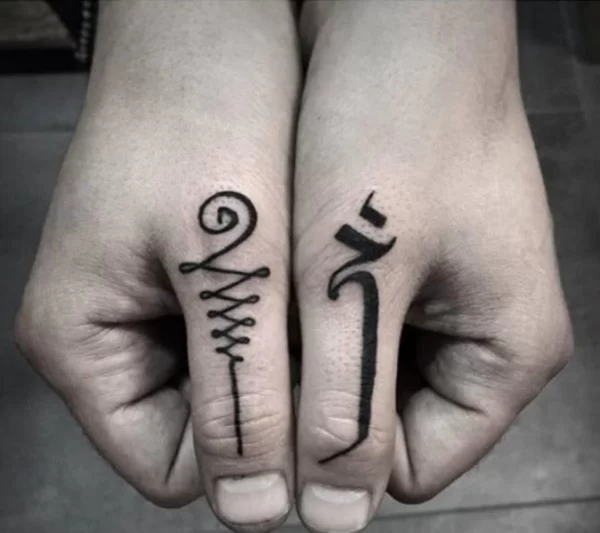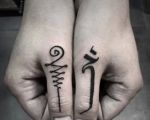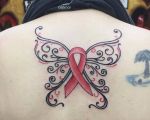
- islamic-symbol-tattoos-meaning
- halal-perspective-on-tattoo-designs
- popular-islamic-symbol-tattoos-and-their-interpretations
- cultural-sensitivity-and-design-etiquette
- modern-personal-stories-with-islamic-symbols
- find-the-right-design-with-inked-up-dolls
1. The Deep Symbolism Behind Islamic Tattoos
Tattoos featuring Islamic symbols carry profound meaning rooted in spirituality, identity, and cultural heritage. These designs are not simply body art—they often represent a deep connection to faith, ancestry, or personal transformation. For many, tattoo designs for Islamic symbols include calligraphy of Quranic verses, geometric patterns, crescent moons, or names in Arabic script. The sacredness of such symbols requires careful handling, both in terms of placement and intention.
While Islamic tradition generally holds a conservative view on permanent body art, many individuals—especially in the diaspora—have adopted symbolic designs as expressions of identity rather than acts of rebellion. Understanding the spiritual and cultural gravity of these tattoos is essential before choosing one.
2. The Halal Debate: Are Islamic Tattoos Permissible?
One cannot explore tattoo designs for Islamic symbols without addressing the theological debate. Traditional Islamic jurisprudence views permanent tattoos as impermissible (haram), primarily due to the alteration of Allah’s creation and potential health risks. This has led many observant Muslims to avoid tattoos entirely, especially those bearing sacred texts or symbols.
However, modern scholars and cultural interpreters sometimes offer a more nuanced perspective, particularly in cases of non-invasive or temporary tattoos. The intent, visibility, and context of the design matter. If someone chooses to honor Islamic art through respectful representation—perhaps with geometric motifs or cultural emblems—the interpretation may lean more toward cultural expression than violation of religious norms.
This complexity means it’s essential to approach Islamic tattoo designs thoughtfully, especially when sacred words or symbols are involved. Always consider expert advice and community guidance before finalizing such a design.
3. Popular Islamic Symbol Tattoos and Their Modern Interpretations
There are several well-known Islamic-inspired motifs that people often choose for tattoo designs. Each carries its own history, meaning, and artistic appeal:
3.1 Crescent Moon and Star
A symbol long associated with Islam, the crescent moon and star is often seen on flags and religious artifacts. As a tattoo, it represents guidance, illumination, and faith. Some wearers choose minimalist versions behind the ear or on the wrist for a discreet yet meaningful touch.
3.2 Arabic Calligraphy
Perhaps the most popular form of Islamic tattoo design, Arabic calligraphy offers elegance and depth. Phrases like “Bismillah” (In the name of Allah), “Sabr” (Patience), or “Tawakkul” (Trust in God) have become favorites among tattoo enthusiasts looking to reflect their spiritual journey. It's crucial, however, to work with calligraphers or native speakers to ensure accurate translation and proper script.
3.3 Geometric Patterns and Mandalas
Inspired by Islamic architecture and design, geometric tattoos symbolize balance, order, and divine structure. These non-textual designs are particularly appreciated by those who want an Islamic aesthetic without crossing religious boundaries.
3.4 Name Tattoos in Arabic Script
Translating one's name—or that of a loved one—into Arabic script is another growing trend. While not overtly religious, it taps into the beauty of Islamic culture. These tattoos are often worn on forearms, collarbones, or shoulders as intimate tributes.
4. Cultural Sensitivity and the Ethics of Representation
When considering tattoo designs for Islamic symbols, cultural sensitivity is not optional—it’s essential. Misappropriating sacred elements or using Arabic script without knowing the meaning can come across as disrespectful or even blasphemous.
For non-Muslims especially, it’s important to consult with Muslim friends, artists, or scholars before finalizing a design. Even if the intention is admiration, execution matters. Avoid placing sacred symbols on body parts considered disrespectful, like feet or lower back.
Social media has documented incidents where tattoos with Quranic verses were criticized for their placement or misinterpretation. These cases serve as a reminder that a beautiful design must be balanced with informed, ethical choices.
5. Personal Journeys: Islamic Tattoo Stories from Around the World
Many Muslims and culturally connected individuals have shared their stories of choosing tattoos with Islamic symbols. For example, Ahmed from Toronto got the word "Sabr" inked on his forearm during a period of personal loss. To him, it’s not just a tattoo—it’s a daily reminder to stay grounded in patience.
Likewise, Leila, a mixed-heritage artist from Berlin, chose a mandala pattern inspired by mosque architecture to reflect her Persian roots. Her tattoo sparked conversations with her family and community, bridging generational gaps and cultural perspectives.
These real-life stories demonstrate that tattoo designs for Islamic symbols are more than skin-deep—they're expressions of resilience, identity, and connection. They remind us that tattoos, when done with respect and intention, can become living stories.
6. Finding the Right Islamic Tattoo Design at Inked Up Dolls
If you’re looking for tattoo designs that respectfully reflect Islamic culture, Inked Up Dolls is the perfect place to start. Our curated collection includes designs rooted in Islamic geometry, calligraphy art, and cultural symbolism, all created with cultural insight and design precision.
Whether you’re searching for a custom design or exploring temporary options that align with your beliefs, our platform helps you connect with artists who understand the sensitivity and significance of Islamic symbols. Explore ideas that resonate with your story, your spirituality, and your personal aesthetic—all in one place.
At Inked Up Dolls, we don’t just sell art—we help you honor yours.








